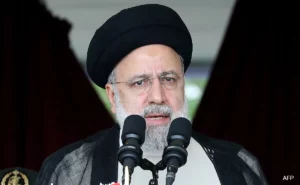Israel’s Unit 8200: A Cyber Warfare Powerhouse

Israel Defense Forces, Unit 8200, cyber warfare
Unit 8200 is an elite military intelligence unit within the Israel Defense Forces (IDF) that has gained global attention for its sophisticated cyber warfare capabilities and intelligence operations. As the largest unit in the IDF, Unit 8200 plays a crucial role in Israel’s national security, employing cutting-edge technology and innovative tactics to gather intelligence, defend against cyber threats, and conduct offensive cyber operations.
Establishment and Evolution
Unit 8200 traces its origins back to 1952, just four years after the establishment of the State of Israel. Over the years, the unit has evolved into a technological powerhouse at the heart of Israeli intelligence, undergoing several name changes in the process. Today, it is considered one of the best military intelligence units in the world, attracting the brightest young minds from across Israel.
Recruitment and Training
Joining Unit 8200 is highly competitive, with recruits typically selected from the top high school students in their late teens. The unit emphasizes out-of-the-box thinking, technical expertise, and innovation in its training programs, which often combine complex intelligence and technical problems. Recruits are trained in a wide range of skills, including hacking, encryption, data mining, and cyber defense.
Missions and Operations
Unit 8200’s missions span a wide range of activities, from gathering signals intelligence to conducting offensive cyber operations and data mining. The unit has been linked to several high-profile cyber attacks, including the Stuxnet virus that disrupted Iran’s nuclear program and the 2017 cyberattack on Lebanon’s state telecoms company Ogero. In 2018, the IDF publicly acknowledged the unit’s role in thwarting an ISIS attack on a civilian airliner traveling from Australia to the United Arab Emirates.
Cooperation with Other Agencies
Unit 8200 works closely with other Israeli intelligence agencies, such as the Mossad, as well as international partners like the U.S. National Security Agency (NSA) and Britain’s Government Communications Headquarters (GCHQ). Much of the data collected by Unit 8200 is shared with these agencies, fostering a collaborative approach to intelligence gathering and cyber defense.
Impact on Israel’s Tech Sector
Unit 8200’s influence extends beyond the military realm, with many of its alumni going on to shape Israel’s booming high-tech industry. Companies such as Waze, NICE Systems, Palo Alto Networks, and Check Point Software were founded by Unit 8200 alumni, who bring their technical expertise and innovative mindset to the private sector. The unit has been described as the “entrepreneur’s Harvard,” with its culture of creativity and problem-solving seen as a key driver of Israel’s success in the tech industry.
Controversies and Challenges
Despite its many successes, Unit 8200 has faced criticism and challenges. In 2014, a group of reservists published an open letter denouncing the unit’s surveillance of Palestinians not involved in violence, raising ethical concerns. More recently, the unit’s reputation took a hit over the military’s failure to forestall the October 7, 2023 attack on Israel, leading to the resignation of its commander.
Conclusion
Unit 8200 remains a vital part of Israel’s defense apparatus, continuously adapting to new challenges in the ever-evolving realm of cyber warfare. Its combination of technical expertise, innovative thinking, and close cooperation with other agencies makes it a formidable force in the global intelligence landscape. As the world becomes increasingly reliant on digital technologies, the importance of units like 8200 will only continue to grow, shaping the future of warfare and intelligence gathering.






